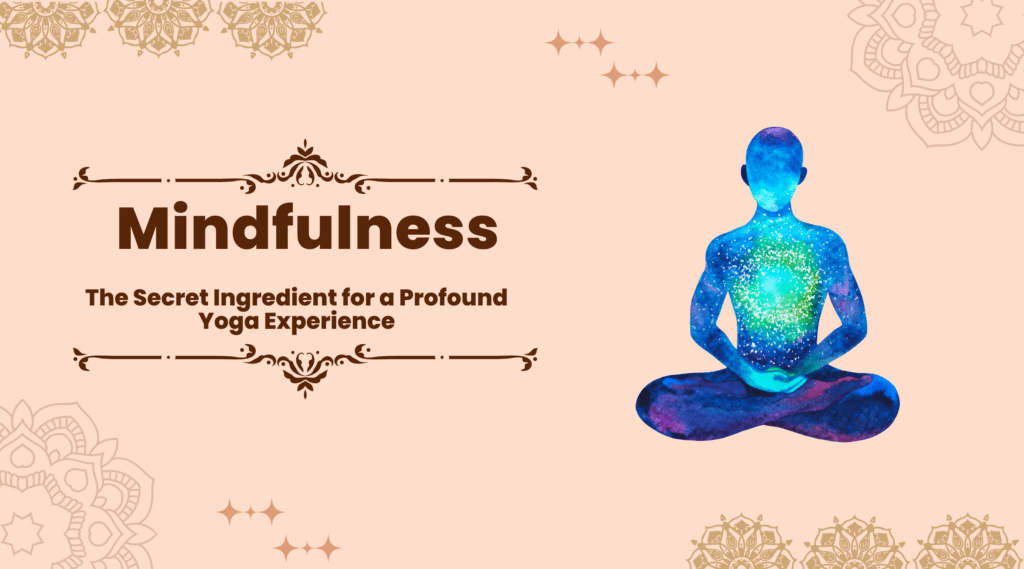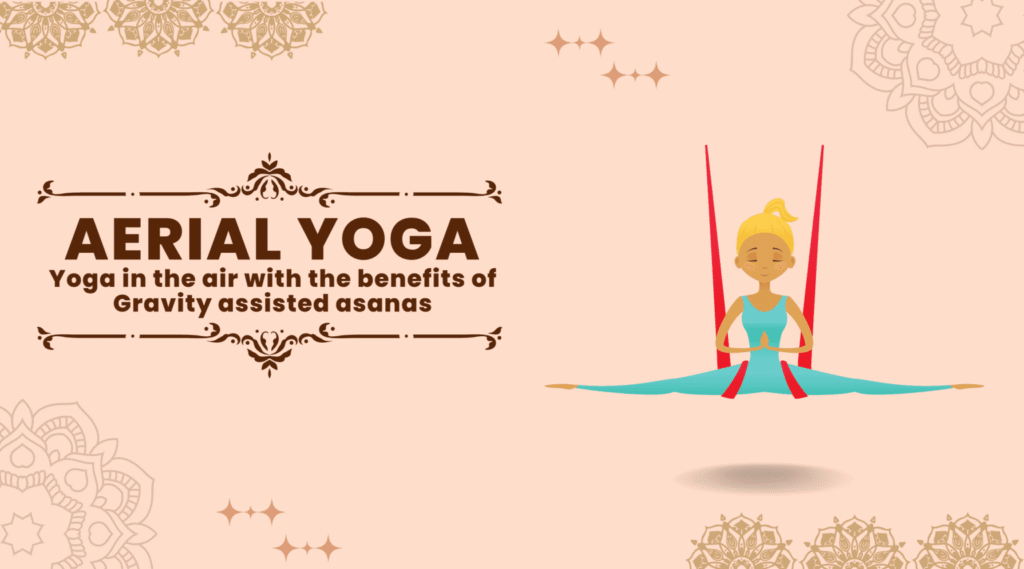
Introduction
What is Mindfulness?
In the cacophony of our fast-paced lives, distractions and demands tug us in every direction. So, the concept of mindfulness emerges as a soothing balm for the weary soul.
Mindfulness is a multifaceted practice that involves cultivating conscious awareness and focused attention. It also encompasses several key components that work together to create a state of heightened awareness and presence.
Therefore, This is the practice of being present in the moment as well as fully aware of your thoughts, feelings and physical sensations without judgement. It’s an integral part of yoga practice which helps you to deepen your mind-body connection, reduce stress, as well as cultivate inner peace.
In this article, we will explore the importance of mindfulness in yoga and how it can benefit your physical, mental, and emotional well-being.
Fundamental Components of Mindfulness
Here are the fundamental components:
1. Attention:
The foundation of mindfulness is the ability to direct your attention intentionally. This involves consciously focusing your awareness on whatever is happening in the present moment, whether it’s your breath, sensations in your body, or your immediate environment.
2. Awareness:
It involves being fully aware of your experiences without attempting to change or judge them. This includes both internal experiences, such as thoughts, emotions, and bodily sensations, as well as external experiences like sights, sounds, and smells.
3. Non-Judgment:
A crucial aspect of mindfulness is observing your experiences without evaluating them as good or bad, right or wrong. It’s about accepting your thoughts, feelings, and sensations with an open and non-reactive attitude.
4. Acceptance:
Mindfulness encourages an attitude of acceptance towards your experiences. This means acknowledging and embracing whatever arises in the present moment, even if it’s uncomfortable or challenging.
5. Present Moment:
Mindfulness centres on being fully present in the here and now. It involves letting go of preoccupations with the past or future and immersing yourself in the immediate experience.
6. Openness:
Mindfulness encourages an open and receptive attitude. It involves observing your experiences with curiosity as well as without trying to control or manipulate them.
7. Curiosity:
Cultivating a sense of curiosity about your experiences fosters a deeper understanding of yourself as well as the world around you. This curiosity encourages exploration and learning without the need for immediate answers.
8. Equanimity:
It helps develop a sense of balance and equanimity while allowing you to face life’s ups and downs with greater calmness and resilience.
9. Breath Awareness:
Paying attention to your breath is a common anchor for mindfulness practice. The breath serves as a focal point that helps you stay grounded in the present moment.
10. Body Scan:
A body scan involves systematically directing your attention to different parts of your body, noticing sensations and tensions without judgement. This practice enhances body awareness and relaxation.
11. Mindful Movement:
Engaging in activities with deliberate awareness, such as yoga or walking, encourages mindfulness in motion. Mindful movement combines physical actions with mental presence.
12. Meditation:
Formal meditation practices, such as mindfulness meditation, involve dedicating specific time to focus on your breath, bodily sensations, thoughts, or a specific object of attention. These practices strengthen your ability to be mindful in everyday life.
13. Gratitude:
Mindfulness often includes cultivating gratitude for the present moment as well as the experiences it offers. It also helps to shift your perspective toward the positive aspects of life.
These components form the building blocks of mindfulness and by practising them regularly, individuals can develop a heightened sense of awareness, presence as well as self-acceptance. That positively impacts various aspects of their well-being.
Importance of Mindfulness In Yoga
In yoga, Mindfulness is an important part because of several reasons. A few of them are following:
1. Improves Physical Health
Mindfulness in yoga can improve your physical health by reducing stress and tension in your body. When you’re mindful during your yoga practice, you’re more aware of your breath, movement, and body sensations, which can help to release any physical tension and increase flexibility. It can also help to lower blood pressure, reduce inflammation, and boost your immune system.
Suggested: Best Yoga Retreats And Yoga Teacher Training In Rishikesh
2. Reduces Stress and Anxiety
Mindfulness in yoga can help to reduce stress and anxiety by promoting relaxation and inner calm. When you’re fully present in the moment, you’re less likely to worry about the past or future, and you can let go of any negative thoughts or emotions. This also helps to regulate the production of stress hormones like cortisol, which can contribute to anxiety and depression.
3. Enhances Mental Clarity and Focus
Mindfulness in yoga can enhance mental clarity and focus while improving your ability to concentrate and stay present in the moment. When you’re mindful, you’re more aware of your thoughts and emotions, which can help you to identify any negative patterns or habits that may be holding you back. This can lead to greater mental clarity and focus, and a greater ability to handle challenges and stress.
4. Cultivates Inner Peace and Joy
Mindfulness in yoga can help you to cultivate inner peace and joy by promoting a sense of calm and contentment. When you’re fully present in the moment, you’re less likely to be affected by external factors like stress, anxiety, or negative emotions. It can also help you to connect with your inner self and cultivate feelings of gratitude, compassion, and love.
5. Deepens the Mind-Body Connection
Mindfulness in yoga can deepen your mind-body connection by bringing your attention to your physical sensations, breath and movement. When you’re mindful during your yoga practice, you’re more aware of how your body responds to different postures and movements, and you can make adjustments accordingly. This can help you to develop greater body awareness and a deeper appreciation for the connection between your body and mind.
Conclusion
Mindfulness is an essential part of yoga practice that helps you to improve your physical, mental as well as emotional well-being. As you embrace mindfulness within your yoga practice, you unlock the potential to cultivate greater self-awareness, inner peace and resilience.
The simple act of observing your thoughts without judgement, feeling the sensations in your body with curiosity as well as allowing yourself to be immersed in the present moment becomes a gateway to understanding your true nature.
Therefore, by being present in the moment and fully aware of your thoughts, feelings, and physical sensations, you can reduce stress, cultivate inner peace and joy, as well as deepen your mind-body connection.
So the next time you step onto your yoga mat, take a moment to be mindful and fully present, and see how it can transform your practice and your life.
You should remember that mindfulness is not a destination but a journey. So, it’s better to carry the essence of mindfulness beyond the mat—into our daily interactions, our challenges and our triumphs.
With mindfulness as you guide, you navigate life’s ebbs and flows with grace, responding rather than reacting while savouring each experience with a heightened sense of gratitude.
You Can Also Read This:


